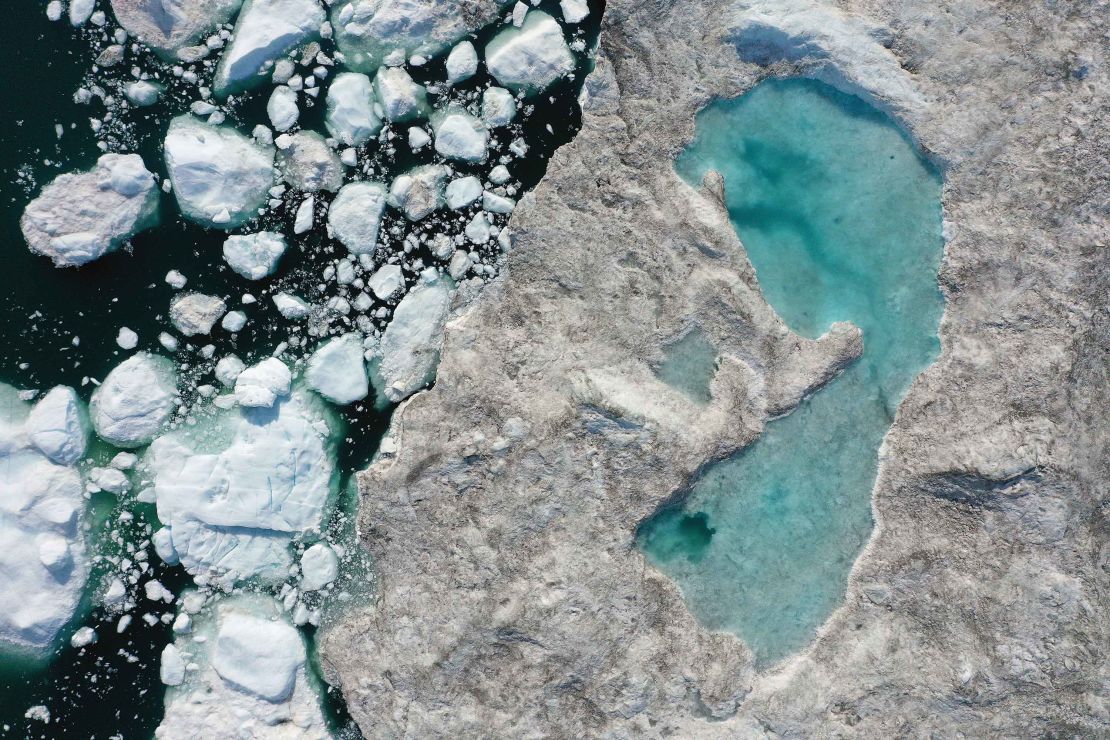Greenland’s ice sheet has melted to a point of no return, study finds | CNN (original) (raw)

Scientist captures melting ice sheet in viral photo (2019)
01:01 - Source:CNN
CNN —
Greenland’s ice sheet has melted to a point of no return, and efforts to slow global warming will not stop it from disintegrating. That’s according to a new study by researchers at Ohio State University.
“The ice sheet is now in this new dynamic state, where even if we went back to a climate that was more like what we had 20 or 30 years ago, we would still be pretty quickly losing mass,” Ian Howat, co-author of the study and a professor at Ohio State University, said.
Greenland’s ice sheet dumps more than 280 billion metric tons of melting ice into the ocean each year, making it the greatest single contributor to global sea level rise, according to Michalea King, the lead author of the study and researcher at Ohio State University.
The ice loss has been so massive in recent years, she said, that it has caused a measurable change in the gravitational field over Greenland.

Ice melting in Greenland contributes more than a millimeter rise to sea level every year, and that’s likely to get worse. Sea levels are projected to rise by more than 3 feet by the end of the century, wiping away beaches and coastal properties.
Coastal states like Florida, and low-lying island nations are particularly vulnerable. Just 3 feet of sea level rise could put large areas of coastline underwater. Forty percent of the US population resides in coastal areas that are vulnerable to sea level rise.
“There’s a lot of places, like in Florida especially, where one meter alone would cover a lot of existing land areas,” King said. “And that’s exacerbated when you get storms and hurricanes and things like that, that then cause extra surge on top of a higher baseline.”
The study also found that the ice sheet is retreating in rapid bursts, leading to a sudden and unpredictable rise in sea levels, making it difficult to prepare for the effects.
The study used four decades of satellite data to measure changes in Greenland’s ice sheet. The authors found that after 2000, the ice sheet shrank so rapidly that replenishing snowfall would not keep up with the rate of melting from parts of the glacier newly exposed to warmer ocean water, even if climate change were reversed.
Entire coasts of ice are retreating at once due to climate change, Howat said, adding that all 200 glaciers that make up the Greenland ice sheet have been observed retreating within the same episode.
Even though the retreat of the Greenland Ice sheet likely cannot be reversed, it’s just the first in a series of tipping points. If climate change continues at this rate, the rate of melting will get much worse.
“We’ve passed the point of no return but there’s obviously more to come,” Howat said. “Rather than being a single tipping point in which we’ve gone from a happy ice sheet to a rapidly collapsing ice sheet, it’s more of a staircase where we’ve fallen off the first step but there’s many more steps to go down into the pit.”